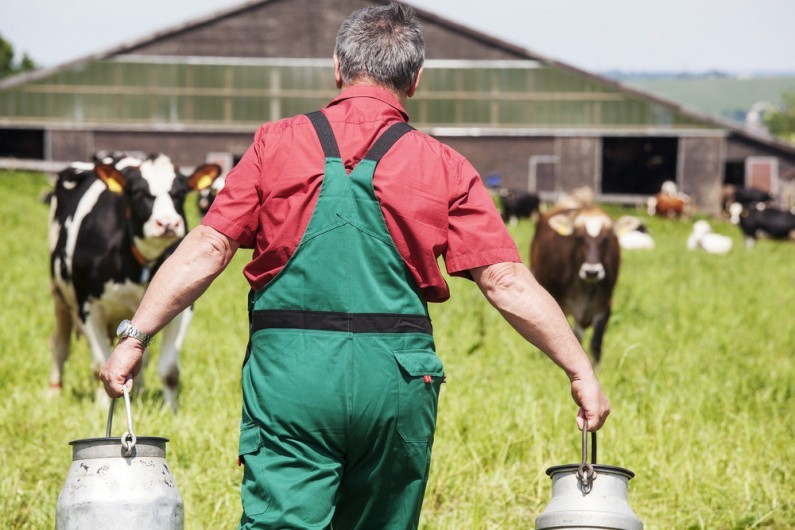What is eligible for Agricultural Property Relief?
Inheritance tax is becoming increasing complex for farmers and agricultural business and land owners, and careful planning is essential in making a successful Agricultural Property Relief (APR) claim.
Inheritance Tax (IHT) is normally payable on an estate when somebody dies, but APR could provide an invaluable relief for farmers and agricultural business and land owners. Under current rules, IHT is payable at 40% on the value of an estate which exceeds the tax-free allowance of £325,000 (£650,000 between husband and wife). Under APR, certain agricultural assets may be eligible for 100% relief from IHT, which can create considerable IHT planning opportunities.
What is Agricultural Property Relief?
APR essentially provides farmers with a relief from IHT for the agricultural value of land and property, either during their lifetime or as part of their will. One significant note to make here is that APR only covers the agricultural value of land and property, which could vary considerably from the market value.
Richard Marsh, partner at Hawsons, said: “APR applies to some agricultural land or property and is an extremely generous tax relief, but is subject to meeting certain, detailed qualifying conditions. For example, the property must have been owned and occupied for agricultural purposes immediately before its transfer, for either 7 years before death if you have let the property out, or owned and lived in it yourself for 2 years before death.”
The claiming process is also becoming progressively more stringent, as Richard explains: “As there are numerous attractive tax reliefs available to the agricultural sector HMRC pays particular attention to any APR claims, which has been highlighted through a number of appeals and tribunals in recent years. Each of these hearings has emphasised the importance of seeking specialist business and tax advice when reviewing your current ownership and occupation structure for IHT and APR reasons. The details are crucial, particularly for those properties that have been let or for farms that have diversified and evolved over time.”
Agricultural purposes – what is eligible for Agricultural Property Relief?
In order to ensure eligibility for APR, it is fundamental that farmers and agricultural business and land owners understand what qualifies for agricultural purposes.
Richard adds: “A cottage or farmhouse that is occupied by someone not employed in farming will not qualify unless the occupier is a retired farm employee, the spouse or civil partner of a deceased farm employee living there under a lease granted as part of their former employment contract, or a protected tenant with statutory rights. Farm equipment and machinery such as tractors, derelict buildings, harvested crops and livestock don’t qualify for APR.”
What should farmers do now?
Planning is essential, and so is making a will which is tax efficient.
Richard concludes: “The first step in planning for IHT and APR is to make a will, and make a will that considers the potential tax implications on agricultural assets when you die. Previously, it was often assumed that husband and wife farmers would leave the farm and all of its assets outright to each other upon death. However, farming is much more complex today – with increased diversification and legislation – and a will that does not consider potential tax implications could bear significant consequences. For example, if the surviving husband or wife is not actively involved in the farming operation then a much more tax-efficient will may be to explore the opportunities of a trust, which could bring considerable tax savings. This will depend on the farm-owners’ particular situation, so it is crucial to seek advice in this area.”
“We advise farmers and agricultural business and land owners to regularly review their activities to ensure their business is structured to take full advantage of APR and maximise their potential tax opportunities. If you are considering raising further capital or diversifying, especially into non-agriculture related activities, which many farms are, then it is crucial you consider the impact on IHT and APR before doing so. Remember: APR is an all or nothing relief – if you don’t meet all of the detailed conditions, then you will not qualify.”
More from our agriculture experts
You can find all of our latest agriculture sector news and newsletters here.
If you are looking for advice in a particular area, please get in touch with your usual Hawsons contact.
Alternatively, we offer all new clients a free initial meeting to have a discussion about their own personal circumstances – find out more or book your free initial meeting here. We have offices in Sheffield, Doncaster and Northampton.
Martin Wilmott acts as lead engagement partner for a wide range of corporate and non-corporate clients in the Doncaster office, especially in the Legal and professional, agricultural, transport, property and construction, manufacturing, healthcare and hospitality sectors. For more information or advice on anything covered in this article please contact Martin on maw@hawsons.co.uk or 01302 367 262.


